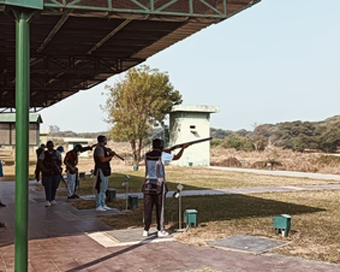 PM Modi visit USA
PM Modi visit USA Only the mirror in my washroom and phone gallery see the crazy me : Sara Khan
Only the mirror in my washroom and phone gallery see the crazy me : Sara Khan Karnataka rain fury: Photos of flooded streets, uprooted trees
Karnataka rain fury: Photos of flooded streets, uprooted trees Cannes 2022: Deepika Padukone stuns at the French Riviera in Sabyasachi outfit
Cannes 2022: Deepika Padukone stuns at the French Riviera in Sabyasachi outfit Ranbir Kapoor And Alia Bhatt's Wedding Pics - Sealed With A Kiss
Ranbir Kapoor And Alia Bhatt's Wedding Pics - Sealed With A Kiss Oscars 2022: Every Academy Award Winner
Oscars 2022: Every Academy Award Winner Shane Warne (1969-2022): Australian cricket legend's life in pictures
Shane Warne (1969-2022): Australian cricket legend's life in pictures Photos: What Russia's invasion of Ukraine looks like on the ground
Photos: What Russia's invasion of Ukraine looks like on the ground Lata Mangeshkar (1929-2022): A pictorial tribute to the 'Nightingale of India'
Lata Mangeshkar (1929-2022): A pictorial tribute to the 'Nightingale of India' PM Modi unveils 216-feet tall Statue of Equality in Hyderabad (PHOTOS)
PM Modi unveils 216-feet tall Statue of Equality in Hyderabad (PHOTOS)India Open Competition in Shotgun, organised by the National Rifle Association of India (N
- Hockey India names Amir Ali-led 20-man team for Junior Asia Cup
- Harmanpreet Singh named FIH Player of the Year, PR Sreejesh gets best goalkeeper award
- World Boxing medallist Gaurav Bidhuri to flag off 'Delhi Against Drugs' movement on Nov 17
- U23 World Wrestling Championship: Chirag Chikkara wins gold as India end campaign with nine medals
- FIFA president Infantino confirms at least 9 African teams for the 2026 World Cup
New vitamin may help DNA repair, reverse ageing process Last Updated : 24 Mar 2017 05:04:35 PM IST 
(File photo)
Scientists have identified a vitamin that plays a key role in repairing damaged DNA and may lead to the development of a drug that can reverse ageing, fight cancer as well as help in space travel.
The study, published in the journal Science, identified how a vitamin called NAD+ -- naturally present in every cell of our body -- was regulating the interactions that control DNA repair.
Treating mice with a NAD+ precursor, or "booster", called NMN improved their cells' ability to repair DNA damage caused by radiation exposure or old age.
"The cells of the old mice were indistinguishable from the young mice, after just one week of treatment," said lead author David Sinclair, who is a professor at University of New South Wales in Australia.
The findings may lead to drugs to treat cancer, Alzheimer's, protect astronauts from radiation during their various missions to space, as well as mitigate any effects of DNA damage for frequent flyers, the researchers said.
In addition, scientists have established that NAD+ could be useful for treating various diseases of ageing, female infertility and also treating side effects of chemotherapy.
Human trials of NMN therapy will begin within six months.
"This is the closest we are to a safe and effective anti-ageing drug that's perhaps only three to five years away from being on the market if the trials go well," Sinclair added.IANS For Latest Updates Please-
Join us on
Follow us on








172.31.16.186







